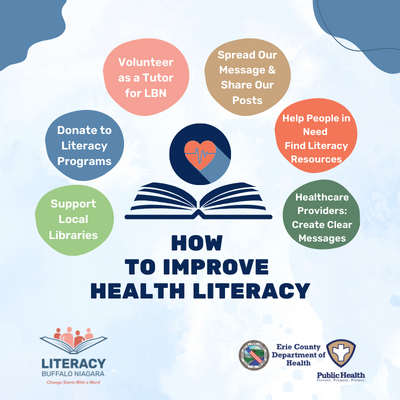
Promoting Health Literacy: Empowering Patients with Knowledge
Health literacy is defined as the ability to obtain and understand basic health information and services needed to make appropriate health decisions. In today’s technology-driven world, it is more important than ever for patients to be empowered with knowledge about their health and well-being. By promoting health literacy, healthcare providers can enable patients to take control of their health and make informed decisions about their care.
The Importance of Health Literacy
Health literacy is essential for individuals to navigate the complex healthcare system, understand medical information, and make informed decisions about their health. Studies have shown that low health literacy is associated with poorer health outcomes, higher healthcare costs, and increased hospitalizations. Empowering patients with knowledge can lead to better health outcomes, increased patient satisfaction, and overall improvement in the quality of healthcare.
Empowering Patients through Technology
Technology plays a significant role in promoting health literacy and empowering patients. By leveraging the power of digital tools and resources, healthcare providers can deliver personalized health information to patients, promote self-management of chronic conditions, and enhance patient engagement. From online health portals to mobile health apps, technology has the potential to revolutionize how patients access and understand health information.
Online Health Portals
Online health portals are secure websites that allow patients to access their medical records, communicate with their healthcare providers, schedule appointments, and refill prescriptions. These portals provide patients with convenient access to their health information, empowering them to take an active role in managing their care. By encouraging patients to use online health portals, healthcare providers can improve communication, enhance coordination of care, and increase patient satisfaction.
Mobile Health Apps
Mobile health apps are applications designed to promote health and wellness through digital technology. These apps can track physical activity, monitor vital signs, provide healthy eating tips, and offer medication reminders. By incorporating mobile health apps into their routine, patients can gain valuable insights into their health status, set goals for improvement, and track their progress over time. Mobile health apps have the potential to empower patients to make healthier lifestyle choices and better manage their chronic conditions.
Strategies for Promoting Health Literacy
Healthcare providers can implement several strategies to promote health literacy and empower patients with knowledge:
Educate patients about their health conditions and treatment options in plain language
Encourage patients to ask questions and seek clarification about their care
Provide patients with reliable and trustworthy health information resources
Utilize technology to deliver personalized health information and support self-management
Collaborate with patients to develop customized care plans that align with their health goals
By implementing these strategies, healthcare providers can help patients become more informed, engaged, and empowered in managing their health.
Conclusion
Promoting health literacy is essential for empowering patients with knowledge and enabling them to make informed decisions about their health. By leveraging technology, healthcare providers can deliver personalized health information, promote self-management of chronic conditions, and enhance patient engagement. Through education, communication, and collaboration, healthcare providers can empower patients to take control of their health and improve their overall well-being.
Remember, knowledge is power when it comes to health. By promoting health literacy, we can empower patients to become active participants in their care and achieve better health outcomes.

